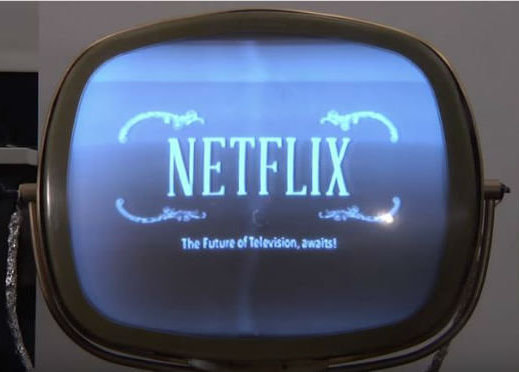Indie movie production companies
on why, when, and how to
segue into television production
Written by Stephen J. Kerr & Sarah Nean Bruce
*********************************************
We wrote this article because 99% of the films that independent distributors sell to the world will never see the inside of a multi-plex. In fact, few will ever be released in theaters in any form. So why are some indie movie producers and distributors still telling themselves (and telling us) that they’re only in the movie business? Studios have long known they are in both the film and television businesses, and in this article, we explain why Indies should acknowledge that they are too.
Even those 1% of films that get a limited or wide theatrical release are in movie theaters for – at most – three to four weeks of their entire lifespan. So, it’s time to ask yourselves, what business are you in? The movie business or the television business?
The answer is, of course, both.
TV series are bought by almost all the same networks and foreign buyers that acquire movies. Often the acquisitions person in charge of TV content will be different, but they all work for the same companies.
We read that the move toward the “anthological miniseries that can reinvent itself every season is a better fit for writers who have a strong story to tell over a small number of episodes but not 65 to 100 as in the traditional series format.”
“I’m starting to feel like the process of making television can be much more fluid. Production timetables and episode counts can follow the voice, the timing, the schedule and the needs of the creative people rather than mold themselves into a predetermined business structure where they have to be creative on demand. To me that’s a recipe for mediocrity.”
– John Landgraf, FX Networks CEO
So why – and how – does one make the jump to television?
His company produces and shoots ten-minute “mini-pilot” presentations, with the star of the show (sometimes an A-List movie star) and head-writer / showrunner attached – and he presents these mini-pilots directly to the networks, studios and OTT channels. Sokolow bypasses the laborious process of pitching a series and then having to rely on the network to fund a pilot.
The mini-pilot presentation cuts through the red tape of selling television properties to networks. These basically look the same as the series, and they give network execs a clear picture of the scope, and the feel, of the show. The costs of these mini-pilot range from $100K to $300K… or about the same investment as an ultra-low budget movie. Doing it this way means that, if the series gets picked up, you could have a $10 to $20 million-dollar production on your hands – and that’s only Season One.
With traditional television studios, the process can be very frustrating to top show creators and writers, and can take a very long time, and then if… IF… a network orders a pilot, and they pay for that pilot, all parties share creative control and have oversight of production. The project can get watered down at every step if decisions have to be made by a committee.
– Sam Sokolow, President & CEO of EUE / Sokolow Entertainment -
the content division of EUE / Screen Gems
When you co-develop, co-produce, and sell television series, as well as movies, you now have the luxury of serving an entire meal to viewers – not just an appetizer.
2nd – Partner with an established Indie television producer to build an independent television division to create and develop limited and/or anthology television series based on your current, and future, properties.
3rd – Work to co-create and co-produce, with that established Indie television producer, compelling ten-minute “Pilot Presentations” (mini-pilots) that will allow you, alongside your Indie veteran co-producing partner, to bypass the difficult process of pitching a script or “show bible” to the networks and OTT channels.
Of course, we can give you a boost in the right direction. Just like making and marketing movies, it all starts with inspired concepts – articulated by great writing and a sound marketing plan. Entertainment is entertainment, whether it is (long-form) movies or (extended-form) television series. The greenlight process may be a little different and the buyers may be new to you, but great entertainment will find an outlet with the right people on board.
Our firm, Bel Âge Médias (B.Â.M.}, is a company specializing in providing Business Development, Branding Guidance, Mergers & Acquisitions (M&A) expertise, Exit Strategies, and Investment Banking services. Additionally, under out ongoing Streaming / OTT / 4K / Ultra HD initiative, we continue pursuing strategic alignments with high-end, entertainment technology providers, and explore low-cost alternatives for theatrical, televised, streamed, and online distribution of 4K and 2K films & television programs globally.
Bel Âge Médias • Santa Monica, California
Call Us - or Visit Us Online - or Email Us:
+1 310 666-6474
https://belagemedias.com/
Stephen(@)BelAgeMedias.com • Sarah(@)BelAgeMedias.com
LinkedIn-Stephen J. Kerr – https://www.linkedin.com/in/stephenjkerr
LinkedIn Sarah Nean Bruce – https://www.linkedin.com/in/sarahneanbruce
To OPT IN to our periodic industry Articles / Updates
➜ CLICK HERE & send us an OPT IN email ✓
1 - 17 Execs Explain Why They Keep Renewing Limited Series – HBO's Big Little Lies. Netflix's 13 Reasons Why. HBO's The Night Of. AMC's The Night Manager. Each of the above dramas were designed (and promoted) as limited series — small-episode-order shows with a beginning, middle and conclusive end that wrapped the story. And yet all four of them are either officially coming back or in talks to return for second seasons. – NOVEMBER 09, 2017
http://www.hollywoodreporter.com/live-feed/big-little-lies-13-reasons-why-17-execs-why-they-keep-renewing-limited-series-1056663
2 – The 18 most anticipated TV shows of 2018. Breaking through in a Peak TV world of more than 500 scripted originals is a challenging task, so top showrunners and stars continue to be in high demand as broadcast, cable and streaming platforms look to cut through the cluttered landscape with familiar faces, writes Lesley Goldberg (including the small-screen series regular debut for Oscar winner Sean Penn). – DECEMBER 01, 2017
https://edit.hollywoodreporter.com/live-feed/18-anticipated-new-tv-shows-2018-1063308
3 – How Streaming Giants Are Spending Money for TV Push – AUGUST 23, 2017
http://www.hollywoodreporter.com/news/how-streaming-giants-are-spending-money-tv-push-1031885
4 – What if more TV shows were anthologies? Viewers might be less overwhelmed.
The Genius of Genius Anthology Series – Courteney Monroe (National Geographic): “It’s easier to expand an existing brand than to create one in the first place. When we see a spark of success, we always consider how we can nurture it into something bigger. With Genius, we knew we wanted an anthology series. Einstein worked. Picasso is up next. And you’d be safe to assume we are thinking about who else’s life and story will stand up to the Genius treatment next.” – JULY 31, 2017 https://www.washingtonpost.com/entertainment/tv/what-if-more-tv-shows-were-anthologies-viewers-might-be-less-overwhelmed/2017/07/31/7b8d3f56-760c-11e7-8839-ec48ec4cae25_story.html
5 – Tim Goodman: The Best of TV 2016 and the "Platinum Age of Television"
http://www.hollywoodreporter.com/lists/tim-goodman-best-tv-2016-955668/item/chance-tim-goodman-picks-2016-955686
6 – FX’s John Landgraf on Competition For TV Talent: ‘It’s Moneyball’ http://variety.com/2016/tv/news/john-landgraf-fx-moneyball-tca-1201681533/
Image Credits:
IMAGE_entertainment.ie_netflix-50s/372706 via entertainment.ie/news
PHOTO_Sarah&Stephen.png via Bel Âge Médias
#####################################################
PUBLISHED AT:
LinkedIn-Stephen J. Kerr – https://www.linkedin.com/pulse/… stephen-kerr/
LINKED AT:
LinkedIn Sarah Nean Bruce – https://www.linkedin.com/pulse/… sarah-nean-bruce/



 RSS Feed
RSS Feed
